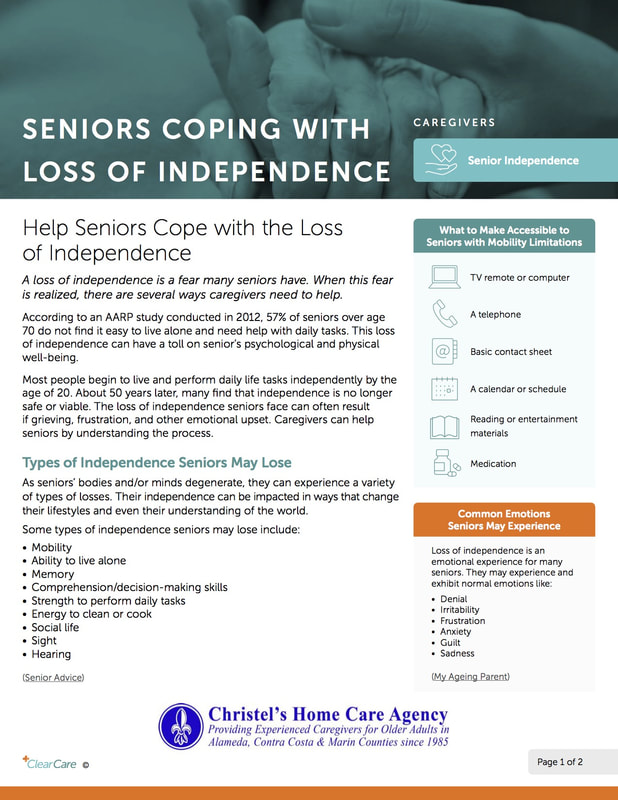 Photo courtesy of Lamb Consulting Photo courtesy of Lamb Consulting Hopefully helpful and inspirational is a book by Alzheimer's advocate Jo Huey from 2008 entitled "Alzheimer's Disease Help and Hope." In this book, caregivers will find a well known list of helpful tips for caregivers who care for those living with dementia. Sharing the Ten Absolutes here along with a link to the book above which can be found on Amazon, at your library, or in other bookstores. Great tips worth sharing. Ten Absolutes of Alzheimer's Care
Source: Jo Huey, founder of the Alzheimer’s Caregiver Institute.
0 Comments
 Photo courtesy of Lamb Consulting Photo courtesy of Lamb Consulting It’s no secret that living in a nursing home is not as safe as it used to be. I don’t know the statistics before the pandemic, but according to a recent AARP Bulletin: “Fewer than 1% of Americans live in long-term care facilities. But 40% of COVID-19 deaths have occurred there.” That is a sobering statistic.* It is also no secret that I started my home care agency back in the mid-1980’s as an alternative to institutions who were not providing adequate care to seniors. It was clear to me they were operating on a business model where the less services you provided, the more profit you made. Although any of us can be exposed and infected by the COVID-19 virus, risk management and statistics say the safest place to be, at least until the pandemic is under control, is to stay home. Christel’s Home Care offers seniors who are no longer able to maintain their independence the option of remaining in the security and comfort of their own home with the assistance of an experienced caregiver. And with an abundance of hospice programs now available, most can remain at home until their last day. Our caregivers specialize not only with hospice patients, but with dementia, cancer, and other debilitating illnesses. Also, having a live-in or full-time caregiver assures that the same caregiver is there, limiting exposure. Our continuity of care policy means you are not exposed to multiple caregivers, but bond with one who, in most cases, becomes like “one of the family”. While no “bubble” is foolproof, the odds favor adding a home caregiver to help with activities of daily living as the safest option for seniors today. * AARP December 2020 issue, volume 61, no. 10, page 6. Recently, I posted on google that we have caregivers looking for work. When I started out over 30 years ago, my goal was strictly focused on helping seniors remain in the security and comfort of their own homes. While this mission has been a big success, I have shifted my focus somewhat over the years.
Besides helping seniors, I realized I was also helping caregivers find jobs, stay working, and support their families. So, while I continue to help our elderly community maintain the highest quality of life possible, an added benefit is finding rewarding work for those who directly provide the service. A win-win!!
Because I have always specialized in providing live-in caregivers, my focus has been as much on personality and character as on their skill set. When it comes to evaluating a caregiver, I look for qualities that can't be learned in a nursing class: compassion, understanding, patience, etc.
While it is important to match the caregiver's skills with the client's needs, it is also vital to make sure they are "compatible". In a previous blog, I gave the example of caregivers who have either a "take charge" or "take orders" personality. A caregiver not only needs to have the right skill set, but how they perform their duties is equally important to insure long-term success of the home care placement. For the temp/part-time caregiver, skill set is probably more important than their personality. But even then, I would submit that for the client's comfort and peace of mind, compatibility is necessary too. Caregivers are always providing some type of companionship regardless of how busy they might be with other duties. While cooking, cleaning, driving, and personal care may be required, who is doing it and their attitude (hopefully friendly and upbeat) makes all the difference. A smile goes a long way! Families run the gamut for how much they want to participate in their loved one’s life as the end nears. During my initial home visit, I specifically ask families how much contact they want from the caregivers who are taking care of their loved one.
I hear everything from “don’t bother us, that’s what we’re paying you to do” to “call me every day with an update”. Most times though, it is somewhere in between. I also encourage family members to make unannounced visits to check up on the caregiver. I also do this and have the caregivers keep daily “nursing notes” so visitors can read about how the patient is doing. We make no judgment about the level of family involvement and try to accommodate their wishes. At a minimum, someone usually needs to pay the bills every so often unless a payroll company or fiduciary is hired. Most other responsibilities can be outsourced or handled by the caregiver or myself. Toward the very end, some families contact hospice for help. They specialize in “palliative care” which means keeping the patient as pain-free and comfortable as possible. Hospice provides a team of professionals who interact with those involved in the home care in order to make the transition as smooth as possible. In conclusion, family’s can be as involved as they wish. Those who serve seniors need to be aware how difficult it can be not only for the ailing senior, but for those around them who have their own set of needs, emotional and otherwise. Caregivers need to understand their job is to support and assist family members as well as their patient. This month I’d like to address the caregiver’s ability and willingness to work with others. It might be other caregivers, family members, visiting nurses or other professionals there to help the client.
In January I talked about a caregiver who can “take charge” of the situation. I spoke about it in a positive way that gives everyone peace of mind. However, like everything else, balance is needed or it can be taken too far. Power struggles are not uncommon. What do I mean? No one should be indispensible. Yes, if a client has more than one caregiver they will most likely have a “favorite” that they’d like to be there all the time. However, I have seen caregivers say and do things that are detrimental, that foster premature dependence. Perhaps the caregiver thinks this tactic will give them more job security. Perhaps it is not even done consciously or intentionally. In any event, this is the opposite of our goal to maximize a client’s independence and quality of life. Most are not benefitted by being waited on “hand and foot”. So just a “heads up” to make sure your caregiver can cooperate with others and be the team player you need to have the system you have in place function optimally. One of my roles after making a caregiver placement is to see that things run smoothly and to intervene if they don’t. A skilled professional can spot a small problem before it becomes a big one. Share comments here if you have questions or other topics of interest that you would like me to focus on. Take care, Chris This month I will go into some depth regarding the caregiver vetting process. Besides the usual screening methods, Christel’s requires a face-to-face interview with all potential caregivers. During this process, we have the candidate fill out an application in front of us. This assures us they can read and write English. I never mail the applicant a form to fill out and return. There is no telling who actually filled it out unless it is done in front of us.
Another reason for the in-person interview is to get a sense of the caregiver’s personality, experience and motivation. If the first question they ask is, “How much do I make?”, that’s a “red flag”. While salary is certainly important and a legitimate question, I don’t like when they lead with it. One goal of the screening process is to offer the caregiver feedback that will best serve them when they interview for an actual caregiving job. Sometimes caregivers have great references but do poorly in the interview. Perhaps they are nervous or their English is poor. It’s not necessarily a deal-breaker if I see potential and their references back up my assessment. In cases like this, we “prep” the caregiver and observe them on their first interview with a family and patient. We then provide more feedback and do everything in our power to help them succeed. If they get hired and do a good job, they usually return for another assignment when the job ends. Conversely, we also see a number of candidates who interview very well but do poorly on the job site. They “talk a good game”, say all the right things, but don’t back it up when it comes to actually helping the client. Maybe they are lazy, addicted to their phones, or even poor cooks - things that can’t always be determined in an interview or reference check. Although it is a good start, it takes more than an interview and reference check in our opinion to insure you have the best caregiver. Your best bet is to use an agency or registry that refers caregivers who have a good track record, a history, with that company. See you next month One of my roles in my 30+ years as owner of Christel’s Home Care is to find the best caregiver possible for my clients. I have screened hundreds, perhaps thousands of applicants. Because my focus is providing quality caregivers, I use the top 10-20% of those I meet, the “cream of the crop”.
Everyone is looking for someone kind, caring, and competent. Let us look beyond the obvious. In my first blog, I’d like to begin sharing the criteria I use when deciding where to place the caregivers who make it into my pool. This month I will be briefly discussing the scale of “takes charge” vs. “takes orders”. After doing a thorough assessment including a visit to the home or facility where the client is currently staying, I look at how they and their family would be best served. For example, if there are responsible family members involved, they may want to provide a list of duties they want the caregiver to complete. In this case, a caregiver who takes direction well might be placed. On the other hand, if the situation is a dementia patient who has no one nearby, it might be best to put a very “take charge” caregiver with them, someone who can take the initiative. On the “caregivers” button, this would be a level 3 “house manager”. It takes placing each caregiver a few times and seeing how they react to determine where they fit on the various scales I use. The ideal caregiver would be able to adjust to both of the above situations and everywhere in between. But caregivers bring their unique personalities and gifts to the job, and not everyone is that flexible. We all have our strengths and weaknesses. I try to place the caregiver where their skills best match the situation. This is just one of many caregiver qualities I look for when making a compatible match. Next month, I will discuss another caregiver quality that factors into how they can best serve. Comments and questions always welcome. Thanks for reading Chris |
Chris Christel, AuthorChris Christel, a pioneer in geriatric care, founded Christel's Home Care Agency in 1985. Chris has a Master's degree in Counseling Psychology and a wealth of knowledge in the field of home care. Archives
August 2021
Categories
All
Note: Any comments posted here belong solely to the individual posting & should not be considered an endorsement by our agency. |


 RSS Feed
RSS Feed